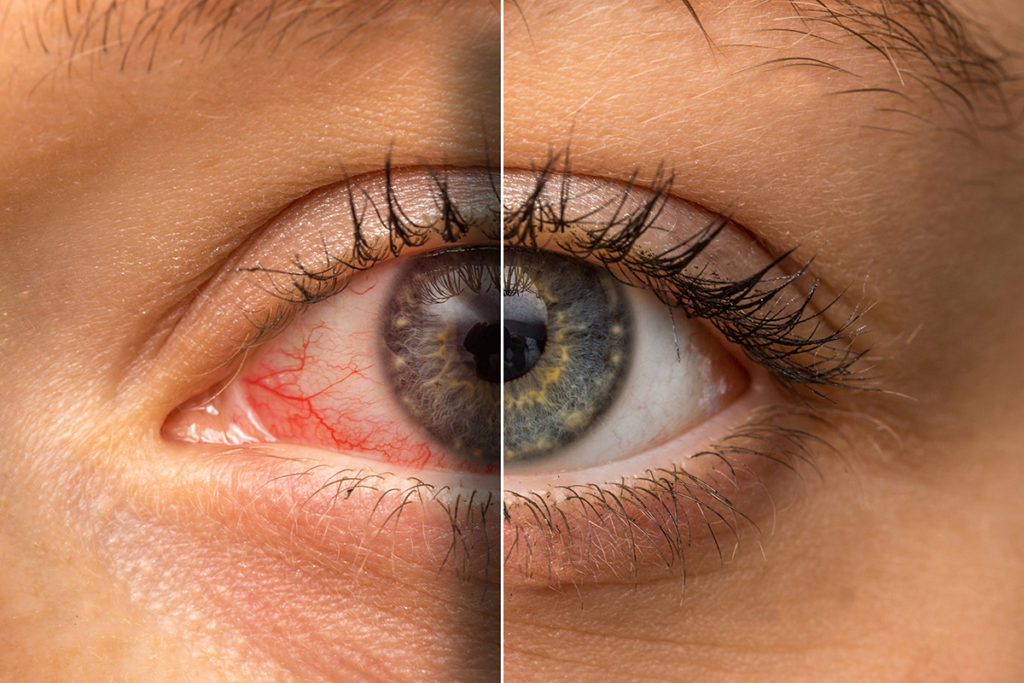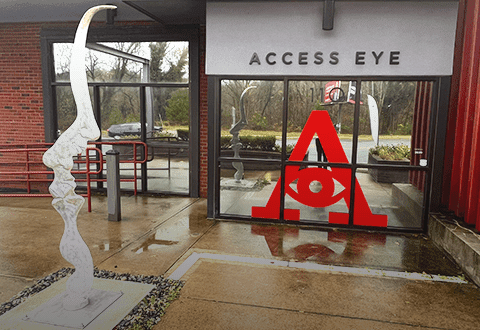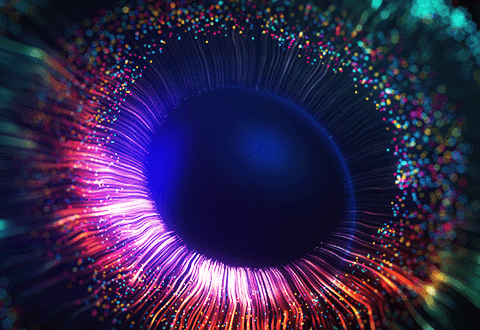When to Seek Help for Eye Allergies? Warning Signs You Need an Optometrist

Eye allergies typically affect both eyes and cause itching, redness, swelling, and other uncomfortable symptoms. Also called allergic conjunctivitis, eye allergies can be confused with other conditions, such as dry eye disease. Men and women struggling with eye allergy symptoms should schedule an eye exam and allergy testing to determine what’s causing their issues and find relief with various treatments. Our optometrists at Access Eye in Spotsylvania offer allergy testing and can help determine what’s causing your eye inflammation and irritation.
What Is an Eye Allergy?
The tissue that lines the inside of the eyelids and the outside of the eyeball is called the conjunctiva. The conjunctiva keeps the eyelid and eyeball moist, but the tissue inflames in response to an allergen, causing redness and itching in both eyes. Mast cells release chemicals, including histamine, that produce inflammation and cause redness, grittiness, burning sensations, swollen eyelids, watering eyes, and other symptoms. Eye allergies may include nasal symptoms such as sneezing, coughing, or a runny or itchy nose. People with eye allergies may feel tired and experience light sensitivity or temporary blurred vision.
An estimated 25% of people experience eye allergies, but these symptoms overlap with other ocular diseases, so an accurate diagnosis with allergy testing is crucial to find relief.
Eye allergies can develop from indoor or outdoor allergens, including mold spores, dust mites, pet dander, and pollen. The eyes may react similarly to dirt, smoke, chlorine, chemicals, viruses, bacteria, and makeup, but these are eye irritants or infections that should be avoided or treated. See an eye doctor to rule out infections or environmental irritants and determine if your symptoms are caused by eye allergies.
How Are Eye Allergies Treated?
The best treatment for allergic conjunctivitis is to avoid exposure to the allergen, but that may not be possible for many patients. Saline eye drops can help clear away the irritant, and over-the-counter medicines or eye drops can ease discomfort. Our optometrists may recommend prescription treatments to improve reactions. Additional treatment options include artificial tears, decongestants with or without antihistamines, antihistamine eye drops, corticosteroids, and immunotherapy shots.
You can try to prevent or lessen allergic reactions with these tips:
- Use air conditioners and air purifiers during high pollen seasons
- Wear glasses or sunglasses outside to prevent allergens from entering the eyes
- Limit dust accumulation and mold spores by cleaning often
- Wash your hands regularly
- Avoid rubbing your eyes
What to Expect During Allergy Testing at Access Eye
Our Plank Road and Falmouth locations offer allergy testing, a quick and painless way to evaluate reactions to common allergens in our region. The skin scratch test presses a device containing small amounts of common allergens into the arm to form small scratches. Our eye doctors wait 15 to 20 minutes for a reaction, then we document skin changes and apply a soothing cream.
Allergy testing results can help you navigate life with eye allergies, and our eye doctors can help you manage the condition with a treatment plan or action plan upon exposure.
Schedule an eye exam and allergy testing at Access Eye at Plank Road or Falmouth today by calling (540) 371-2020. Our team provides comprehensive eye care and eye surgery at multiple locations in Virginia, including Stafford, King George, Fredericksburg, and Spotsylvania.
















